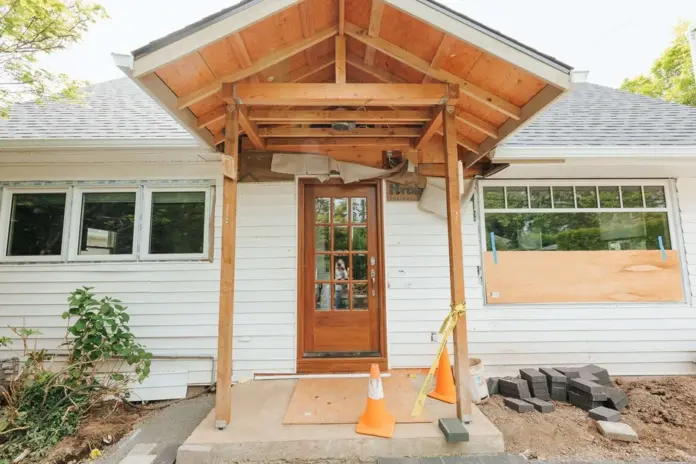Mounting inflation, tariffs and gyrating stock prices. When you have economic uncertainty brewing, it’s human nature to think about how much retirement you can afford. Will your nest egg remain intact (and as valuable) as you had planned? Will your home still stand as the investment you intended it to be? These questions and more will be answered here, helping you to understand and take action in 2025.
How Much Will Property Value Fluctuate?
It’s true that your property value will fluctuate during a volatile economic season. But this is no cause to panic. There will be fewer buyers out there looking for homes. Why? Because people will be holding on to what they have until things improve.
Many Americans will also be forced to sell their homes to maintain their lifestyle. This is what we call a buyer’s market, meaning that if you can afford to buy a home, you’re more likely to find one at a good price. If your home is your nest egg, and you can hold onto your property, it’s best to simply wait it out.
Will the Markets Become More Unpredictable for Those Who Want to Invest in Stocks?
Yes, markets will become unpredictable due to changing money laws, AI regulations, and rising prices. This is a good time to spread your money across more investments instead of just a few. If your nest egg is stocks, start to move your money around to decrease risk.
Is Your Property a Viable Safety Net?
In volatile economic times, it’s not always wise to consider your property a viable safety net. That’s because cash and liquidity are necessary to get through rising retail prices and higher expenses. While your property is a good asset to have, make sure you have savings in the bank, too.
There’s no shame in lowering your living expenses. See if you can cut your grocery bill by at least 30%. Also, get rid of those luxuries you don’t necessarily need, like subscriptions, clothing, and furniture. Keeping your house is a high priority, because selling it in a buyer’s market means a lower ROI for you.
How Do Tough Economic Times Affect Retirement Investments?
Generally speaking, Gen X will be the first generation to retire poorer than their parents. Many Americans have paused their retirement plan payments so that they can have more cash on hand to pay for food, furniture, and the like. This means a significant reduction in the nest eggs of many. If this is you, try your best to pay as much as you can into your retirement plan, without falling on hard times.
What Should Your Emergency Fund Look Like in 2025?
It’s been said many times by finance gurus like Suze Orman that you should always have three months’ salary saved up for difficult times. But with the economy the way it is now, it’s best to keep an emergency savings pool of six to 12 months. This will give you enough time to pay your bills and find work if and when you have to.
How Will Inflation Affect Homeowners?
Inflation will affect homeowners more or less the same as everyone else. When things cost more, your money doesn’t go as far as it used to. This means that as a homeowner, you should prioritize your cash better, redo your budget, and do everything you can to hold onto your home while cutting expenses everywhere else.
Since prices are going higher and higher, it’s important to protect your investment with homeowners insurance if you haven’t already. Find a policyholder that gives you low monthly payments, helping you to afford the lifestyle you’re accustomed to.
You may also find that renovations take a back seat for a while. Yes, it’s important to maintain your home, but this isn’t always possible when the economy is volatile. Choose which repairs are most important and invest your disposable income into those projects rather than others that aren’t as important.
Market Corrections Can Offer Investment Opportunities
There is some good news if you’re an investor. Many of the markets may be down now, but they will recover over time, whether mid-term or the long term. Speak to a financial advisor about market trends, and identify the trades that are likely to get back on track in two years or longer. Invest your money in a number of these trades and watch your money grow, albeit slowly.
Final Thoughts
Try out these tips and get through the storm. It’s true, times are tough for many of us right now, but with a few smart decisions and a bit of belt-tightening, we can all ride this out. It’s inevitable that the economy will improve once this teething of new technology and tariffs is over. It’s only a matter of time, so hang tight.








